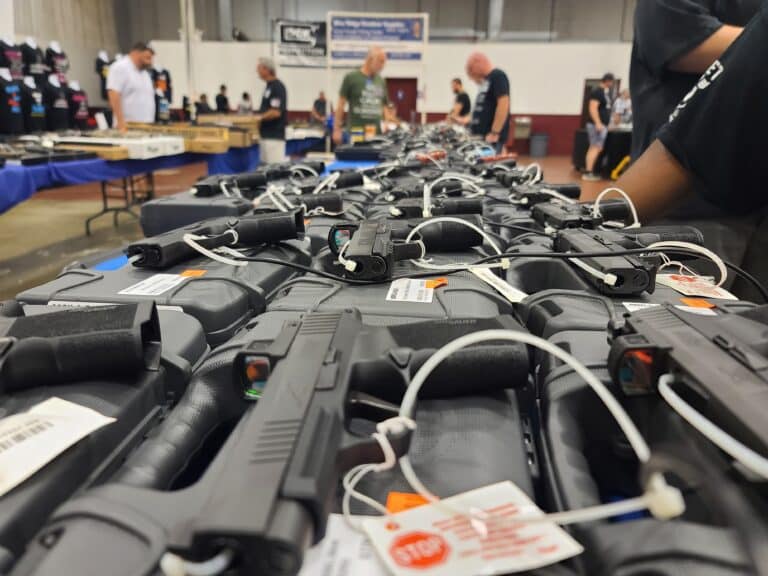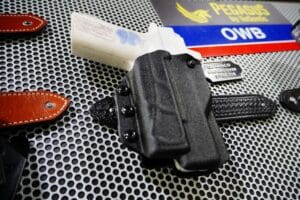The Vice Presidential candidates spent a good chunk of Tuesday’s debate talking about gun policy but little time on the major gun stories of the race.
Ohio Senator JD Vance (R.) and Minnesota Governor Tim Walz (D.) had a lengthy exchange about firearms. It was civil. It was even substantive.
However, neither brought up some of the most controversial stories of the race. Kamala Harris’s history of supporting gun confiscation efforts, including her newly-resurfaced backing of a 2005 San Francisco pistol possession ban, was absent from the discussion. So was Donald Trump’s status as a felon who is currently prohibited from owning any guns at all.
Why the two men at the bottom of the ticket avoided these topics is a bit perplexing. They were somewhat limited by what they were asked, but either candidate had the opportunity to bring up whatever they liked. After all, the two questions they were asked focused on whether parents of school shooters should be prosecuted and Walz’s flip-flop on banning “assault weapons,” which both candidates moved beyond to broader topics pretty quickly.
What they did cover was also less impactful than it may have seemed at first glance. Outside of agreement that each side wants to solve school shootings and a relatively uncontroversial position that parents of shooters should be charged on a case-by-case basis, the two sides mostly hit the notes you’d expect from them.
Vance argued that, while he doesn’t like the idea, the best plan for preventing school shootings is greater school security.
“The idea that we can magically wave a wand and take guns out of the hands of bad guys just doesn’t fit with recent experience,” Vance said. “So, we’ve gotta make our schools safer. I think we’ve gotta have some commonsense, bipartisan solutions for how to do that.”
Walz responded that other countries don’t have the same problems with school shootings, and gun restrictions are the reason why.
“I ask all of you out there, do you want your schools hardened to look like a fort?” Walz said. “Is that what we have to do when we know there’s countries around the world that their children aren’t practicing these kinds of drills, they’re being kids.”
Vance responded that we have different problems than places like Finland.
“We, unfortunately, have a mental health crisis in this country that I really do think we need to get to the root causes of because I don’t think it’s the whole reason why we have such a bad gun violence problem,” Vance said, “but I do think it’s a big piece of it.”
Walz fired back that, no, it is the guns.
“I think what we end up doing is we start looking for a scapegoat,” Sometimes it just is the guns. It’s just the guns, and there are things that you can do about it.”
Then Vance pointed to intercity violence as another significant difference between the US and other countries. Walz pointed to rural gun suicides as an even bigger problem.
In other words, this was a back-and-forth that could’ve been had between any generic Republican and Democrat at pretty much any time in the past decade or more.
There were a few flourishes to this campaign in particular. Walz made sure to plug the fact he and Harris own guns. Vance highlighted illegal cross-border gun-running.
Vance came off as more polished, too. Walz, at one point, implied Harris was also a hunter. He also said he had become friends with school shooters when he apparently meant school shooting survivors.
The debate was a much longer and more substantive conversation about gun policy than we’ve seen at any other point of the race, including the Republican primary race. But it was still mostly a cordial exchange of well-established positions on issues that haven’t defined the 2024 gun debate.






